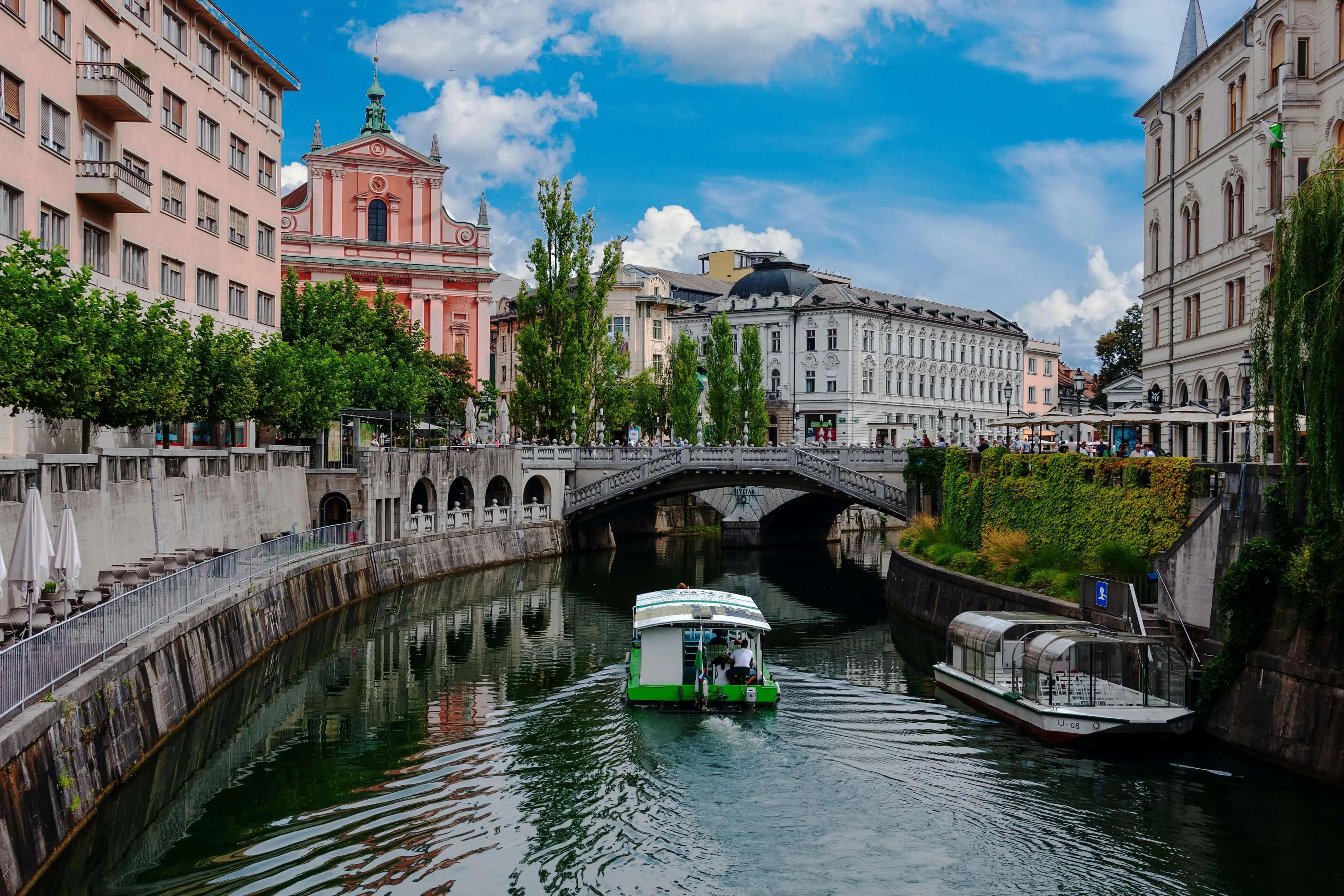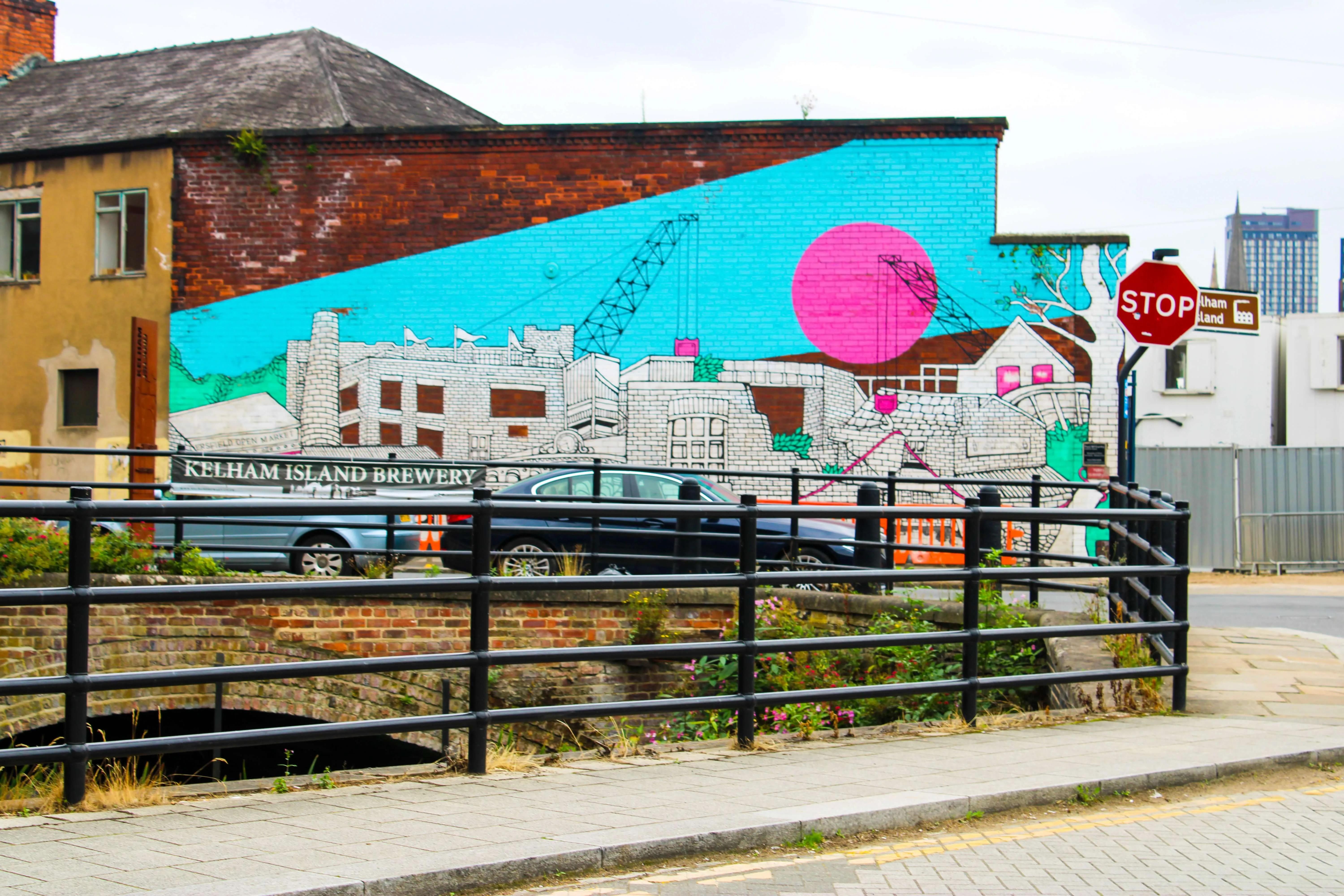Bond with your team without killing the planet

As a rule, remote work is better for the environment. After all, no commute, no office-wide air-conditioning, fewer printers and dishes and elevators.
As another rule, company retreats are one of the secrets of long-term success in remote. During a retreat, team members form bonds, collaborate on projects and align on strategy. Research has proven time and time again that getting everyone away for a corporate retreat can boost connectivity and morale – not to mention improve productivity. Meeting twice per year (we call these OffSlites) is one of the non-negotiables on our roadmap.
However, if your company is truly global and async, then gathering everyone together can quickly put a strain on the environment. 100 flights can quickly cancel out all that environmental goodwill you've built up over the course of a year.
So if you're planning a corporate retreat in the next year, here's how to organise the trip wisely so you don't increase your company's carbon footprint.
5 things to remember when booking your corporate retreat
Travel sustainably
Air travel is responsible for a whopping 5% of our contribution to global warming, and – as a general rule – the shorter the distance from home you travel, the lower your carbon footprint. With this in mind, then, it’s best to plan your corporate retreat so that it takes place in a location that everyone can reach by foot, bike, or train. You could even turn the journey itself into a fun activity for all involved, if you’re in the mood for something a little bit more adventurous: perhaps a team hike or a long-distance cycle could be the way forward?
Offset your carbon footprint
Carbon offsetting is easier than it sounds, as there’s a number of tools and websites available – such as NativeEnergy, Trip Zero and Carbon Credit Capital – that can do the hard work for you. Their carbon footprint calculators will tot up your trip’s carbon footprint, before helping you to redress the balance in myriad ways. Think reforestation projects, wind farm investments, and funding clean water for rural communities.
At Slite we use GreenPerk - the offset service offered by booking service TravelPerk. (Fun fact, you can use the GreenPerk API to customise your company's emissions targets.)
Keep it local
It’s important to consider your social impact, so why not try volunteering in some of the area’s environmental and social projects? If this isn’t an option, though, be sure to opt for local experiences wherever possible (think home stays and local guides). This will help to ensure that your money is injected back into the local economy, which will in turn benefit the community.
Think about timing
If you choose to visit a crowded and popular tourist destination (such as, say, one of Italy’s beautiful cities), try doing so outside of peak summer months, when locals will most feel the benefit of your patronage. Another good idea could be to choose a city that is just as beautiful as the touristy ones but less known. For example, you could swap Florence for Lucca, or Venice for Bologna.
Choose your destination wisely
Above all else, think about where you will be hosting your corporate retreat. We recommend going local, looking at communities that would best benefit from your tourism, or even opting for one of the European Destinations of Excellence (EDEN), each of which has been selected by the European Commission for the quality of their tourist offers and their respect for the environment.
To help make things a little easier for you, we’ve selected five of our absolute favourite destinations for an eco-friendly corporate retreat.
Ljubljana, Slovenia

Slovenia is top of our list when it comes to planning your eco-friendly corporate retreat, and for good reason. Not only was its capital, Ljubljana, named Europe's Greenest Capital by the European Union in 2016, but it has also developed the Green Scheme of Slovenian Tourism (GSST).
The GSST has pulled together a list of parks, restaurants, tourist destinations, accommodations and more that meet their gold (aka green!) standard, and awarded them with a Green Certificate. By using this guide, tourists can ensure their visits to Slovenia are as sustainable as possible.
Perhaps you might like to attend a wine tasting at a vineyard nestled halfway between the Alpes and the Adriatic Sea? Or climb to the top of the picturesque Ljubljana Castle? Or even sign up for an adrenaline-fuelled team-building adventure in the virgin forest of Kocevsko?
Whatever you and your team winds up doing, we recommend a hike through the unspoiled Julian Alps; there are a number of different trails to choose from – including the Soča trail and the Walk of Peace. You’re guaranteed to find one that suits your group’s abilities.
Scotland, UK

Thanks to its gorgeous landscapes, Scotland is quite literally one of the “greenest” countries in Europe – so it stands to reason it's an eco-friendly destination, too.
Thanks to its brilliant public transport network, it’s easier than ever to get around the country – although we recommend sticking to one area to reduce your carbon footprint.
If you fancy spending time in the gorgeous Caledonian countryside, why not sign yourself and your employees up with Trees for Life, an organisation which undertakes tree planting and other essential conservation work? Or, if you prefer a city break, then be sure to book onto one of Invisible Cities's tours of Edinburgh and Glasgow, which are delivered by guides who have previously experienced homelessness: our favourite is the Languages Of Scotland tour, profits from which are used to support Ukrainian refugees.
Cigoc, Croatia

Croatia is famed for being an area of natural beauty, thanks to its plethora of national parks, arboretums, wetlands, and Blue Flag Beaches. Why not, then, try spiriting your team away to Čigoć – which is home to more storks than people – and get back to nature? You can settle in at the local campsite, embark in a spot of birdwatching, and treat yourself to a gastronomic adventure at one of the village eateries – not to mention visit the gorgeous nearby Lonjsko Polje Nature Park.
A word of advice, though: do your best to reduce travel congestion on roads, buses and trains during peak periods by exploring as much as you can on foot. It’s more ecofriendly, and it’s also just a better way to see all that the country has to offer!
Sheffield, UK

Once upon a time, it was the steel-making capital of the world. Nowadays, though, Sheffield has been named the greenest city in the UK, thanks to its 22,600 acres of green space and high volume of renewable energy production (71MWh/1,000 people annually) – and it’s incredibly easy to get to, thanks to National Rail links.
Once there, you’ll find plenty to do – and we’re not just talking about all the pubs, restaurants, museums and usual city sights. You can, for example, immerse yourself and your colleagues in nature via the Winter Garden, Sheffield Botanical Gardens, or Graves Park. Or you could all team up to hike the Rivelin Valley Nature Trail.
As if that weren’t enough, you and your team can also attempt an Alpaca Trek at Holly Hagg Community Farm, or try your hand at falconry at the Tropical Butterfly House, Wildlife & Falconry Centre. Or why not venture out into the stark moorland of the Peak District National Park?
Whatever you decide to do, we recommend celebrating afterwards with a beer tasting: the likes of Abbeydale Brewery, Kelham Island Brewery and The Sheffield Brewery Company are all local to the area, and a surefire way to win over any ale lovers at your corporate retreat.
Team bonding doesn't have to come at cost to the planet
Just because meeting in person is the best, doesn't mean your retreat has to be the worst for the planet. If you gather your team in the most sustainable way possible, you'll set the standard for generations of employees down the line.
Many thanks to the folks at Jurnee for writing this post. If you want to plan an eco-friendly event, check out Jurnee's unique experiences.

Written by Christophe Pasquier
Christophe Pasquier is Slite’s co-founder and CEO. Chris’ goal is to help teams do incredible work in better environments, by helping them embrace remote work and async communication. He currently lives in Berlin with his wife and baby Noé. Find him @Christophepas on Twitter!


